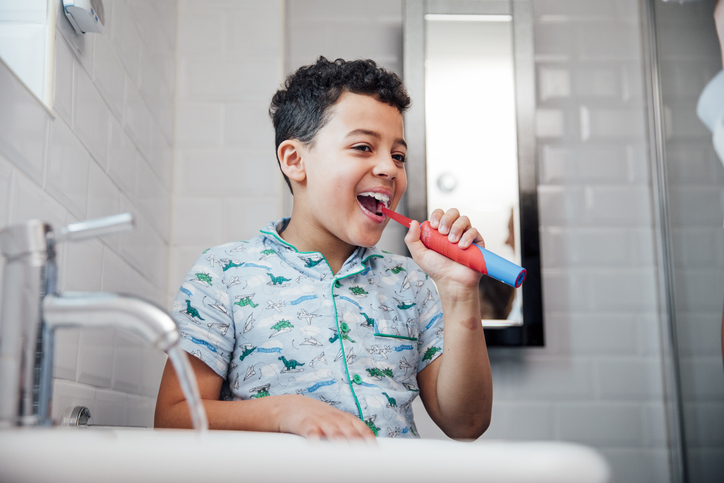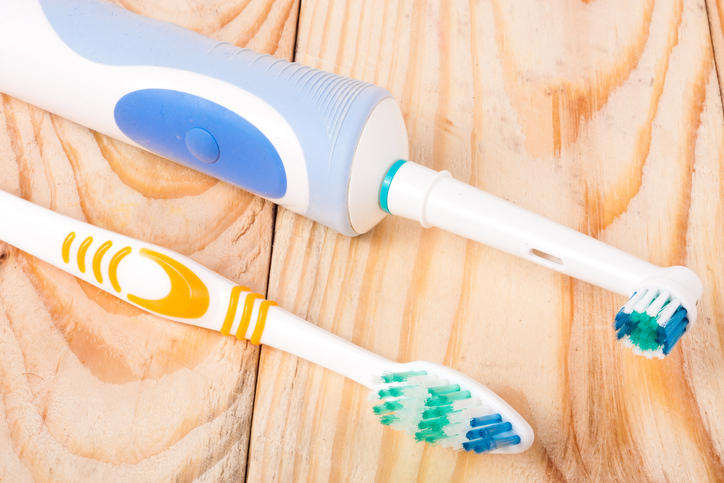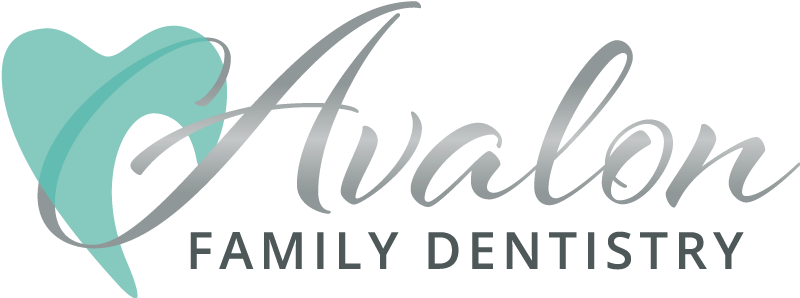Manual or Electric? Hannah Doan, DDS Provides Her Tips and Advice on Which Toothbrush is Best
“The most critical factor is not the type of toothbrush, but how it’s used. Proper brushing technique regardless of the type of brush is essential for maintaining good oral health”
In her latest video, Dr. Doan provides her thoughts on the pros and cons of manual vs. electric toothbrushes.
So, which version packs the biggest punch in the fight against plaque?
Does that battery-operated dental wand really give you a superior clean over the old-fashioned way?
Let’s find out what Dr. Doan thinks.
Electric toothbrush advantages
One of the first benefits Dr. Doan mentions is the convenience of the built-in timers. “This is helpful to ensure we brush our teeth for two minutes.”
As you brush with an electric brush, it rotates forward and backward.
You’re also moving the brush in your mouth and helping to increase the brushed surface.
All that action can effectively remove debris and plaque build-up. Plus, it has other advantages.
More effective brushing method
For one, as you’re comparing the two, in studies, electric toothbrushes have been shown to remove more plaqueThis link opens a new tab to the Cochrane website, especially over time.
Studies also indicate a reduction in gingivitisThis link opens a new tab to the NCBI website.
However, the perks go beyond research.
Limited mobility won’t get in the way
Secondly, electric toothbrushes may be easier to use if you have arthritis in your hands or wrists.
The same applies if you have carpal tunnel or another similar condition.
You may more effectively remove plaque because the toothbrush does most of the work.
But that’s not where the benefits end.
Is easier on the environment
You’re also helping the environment as you brush with an electric toothbrush!
Ideally, you should change a standard toothbrush every three to four months. We know that’s a best-case scenario, though.
With an electric toothbrush, you only have to replace the head, producing less waste over time.
Keep in mind that the average electric toothbrush can last three to five years. (Wow, the difference)
Still, the benefits don’t end there!
Improves the oral health for those orthodontic appliances
Getting in between all the nooks and crannies with braces can be a pain.
In addition to all the benefits above, electric toothbrushes are specifically beneficial for those with dental appliances.
Getting in between all the crannies with braces can be a pain.
But with an electric toothbrush, you can make brushing easier and is more effective.
It still may lead you to wonder if electric toothbrushes are better for children.
Built-in functions
Dr. Doan talks about the additional features like:
- Brusher sensor
- Brushing mode
- Bluetooth connectivity
“These extra features provide feedback and help create a more personalized oral care routine.”
Fun for children


Last but not least, and fortunately for children and parents, an electric toothbrush may be a huge win.
Is getting your little one to brush a battle?
Or do they lack interest?
An electric toothbrush can turn a mundane task into a delight for your youngster.
You can find ones that do everything except get them dressed in the morning!
Jokes aside, some special features available include:
- Music
- Timer
- TV or movie characters
- Colorful designs
At this point, you may feel there are no disadvantages, but that isn’t necessarily the case.
Electric toothbrush negatives
While electric toothbrushes have their perks, they’re not without faults.
Overall, electric toothbrushes can be more costly initially.
Plus, you pay for the electricity or batteries.
And you can’t forget about the cost of the replacement heads.
Not to mention, electric ones are a bit messier in the battle of manual vs. electric toothbrushes.
They are sloshing around more saliva.
For some people, that vibrating sensation is uncomfortable.
So, could a manual toothbrush be the answer for you?
Manual toothbrush advantages
First and foremost, manual toothbrushes have proven their worth over and over.
Did you know the first documented toothbrush was from the 600s?
These toothbrushes can effectively remove plaque and debris when used correctly.
The benefits don’t stop there, either!
Can get them anywhere
For instance, you can find manual toothbrushes at a number of places, such as:
- Grocery stores
- Pharmacies
- Gas stations
- Dollar stores
- And more
Electric toothbrushes, on the other hand, are more elusive.
That’s not where it ends!
Are more convenient
In the battle of electric vs. manual toothbrushes, manual wins for their convenience.
You need batteries or an outlet to charge an electric brush.
When the brush runs out of charge, you’ll need a backup brush.
If your batteries run out and you don’t have a spare set, you’re plum out of luck.
You’ll need a backup.
The same applies if you’re traveling.
If you go camping and are away from home comforts, forget it!
That plug-in brush is useless once it dies.
On the other hand, you can whip out a manual brush any time, any place.
That may still lead you to wonder about the cost.
Are a more affordable option
Fortunately, a manual brush can cost significantly less, even if you have to replace the entire brush regularly.
Now, you may be questioning if there are any cons to a manual brush.
Manual brush negatives
While a manual brush is quite the contender in the battle, it still has a few drawbacks.
Prime example: some people may brush more aggressively with a manual brush.
That doesn’t equate to a cleaner mouth.
It could, however, cause bleeding gums. You might also be wearing down the enamel.
Children may not get excited over a manual brush like an electric one.
Brushing tips
Before we close out this match, let’s take a few moments to discuss proper brushing techniques.
Because, no matter which brush you use, how you use it makes all the difference.
For instance, with a manual brush, never brush back and forth. Instead, always brush in a circular motion to effectively reach all the surface areas of your teeth.
With an electric tooth brush, you may have an easier time accomplishing that and brushing all reachable surfaces.
And finally, no matter how you use your brush or which you use, how long you brush matters.
To efficiently give your teeth a good scrub down—making sure you never brush aggressively—brush for at least two minutes per session.
There you have it!
Recap of the debate


Electric toothbrushes certainly have their share of benefits.
But when it comes to manual vs electric toothbrushes, either option can effectively clean those chompers, as long as you work it right.
Plus, using either method can help prevent gum disease.
However, only you can decide which works for you based on your budget and preferences.
We at Avalon Family DentistryThis link leads to Home page just want you to brush twice daily.
We can give our professional opinion if you’re unsure of which is best.
Oh, wait, we also want you to visit us bi-yearly for professional cleaningsThis link leads to Professional Cleanings page!
Book your routine appointment today by calling or using our online form.
Or:
- Call us at: 253-941-6365
Federal, WA is our homeThis link opens a new tab to Google Maps. We’re just a hop, skip, and jump away from Auburn, Lakeland North, Seattle, and Port Orchard.
